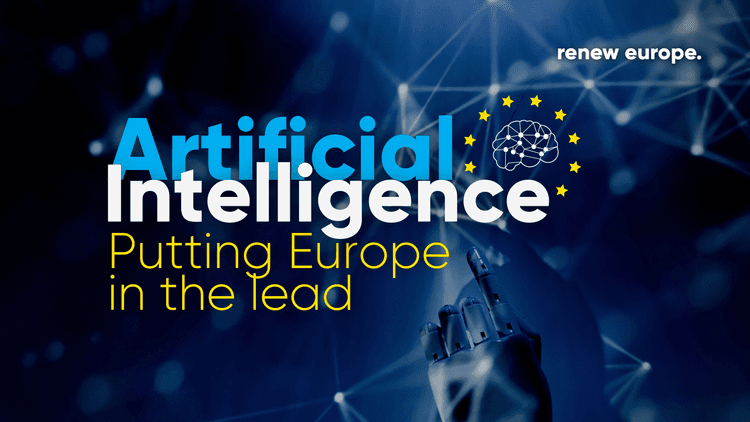
The digital revolution has triggered a global tech race, and the EU is currently falling behind, with only eight of the world's top 200 Digital companies domiciled in our union. If the EU fails to set standards for human-centred Artificial Intelligence (AI) based on our ethical and democratic values, they will be decided elsewhere. The outcome could harm our economies, security and democratic systems. That is why Renew Europe has pushed for a union-wide regulatory framework to make the EU an AI-leader setting the global standards.
Finally, an important step forward has been taken. In a report today adopted by the European Parliament's Committee on Artificial Intelligence (AIDA), MEPs identified several policy proposals for the EU to unlock the full potential of AI while also combating the challenges ahead.
Andrus Ansip, Renew Europe's shadow rapporteur on the 'Artificial Intelligence in a Digital Age' AIDA report, said:
"I consider this report as a good vision paper, which describes our ambitions and how to reach them. Our aim is to build human-centric AI in the European Union, which will serve our people while respecting their privacy.”
Focused on the fields of health, climate change, security, competition, democracy and the labour market, the report calls for establishing a risk-based AI framework with ethical standards and appropriate liability and sector-specific provisions.
Svenja Hahn, Renew Europe's Coordinator in the AIDA committee, added:
"The final report of the Special Committee on Artificial Intelligence is an impressive achievement. For the first time, the European Parliament defined its vision for the role of Artificial Intelligence in our societies. It is now crucial to implement the main takeaways in the upcoming AI Act. The EU's AI Regulation must foster tech innovation in Europe, support start-ups and SMEs, guarantee civil rights and ensure consumer protection in the digital age.”
Further, the report seeks to ensure that our digital infrastructure is climate-neutral and energy-efficient by 2030 through clear rules and guidelines for environmental impact assessments for AI. It also expresses the need to establish an EU Cyber Defence Agency to develop and implement clear EU-wide AI-procedures to respond to cyber-attacks.
The need to make EU champions in supporting small and medium-sized enterprises (SMEs) and start-ups, for instance, by improving access to financial resources and specific legal and technical support, is also highlighted in the report. It further emphasises the benefits of well-contained regulatory 'sandboxes', which would serve as a testbed for AI developers under controlled and supervised forms.
Dragoș Tudorache, chair of the AIDA Committee and rapporteur for the upcoming AI legislation, concluded:
"The AIDA report is a comprehensive take by the European Parliament on Artificial Intelligence that looks beyond the AI regulation, to the future of AI in Europe and the world. One key takeaway from the report is that we need to work with our like-minded democratic partners to shape the rules of the digital future together so that AI continues to be developed for the benefit of our citizens and our economies and in accordance with our values.”
Next step: The report is expected to be put to a vote in the May Plenary session of the European Parliament.